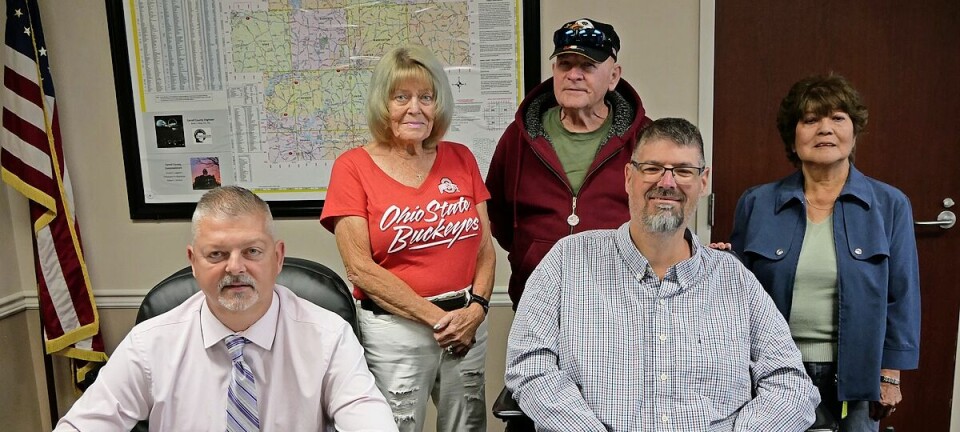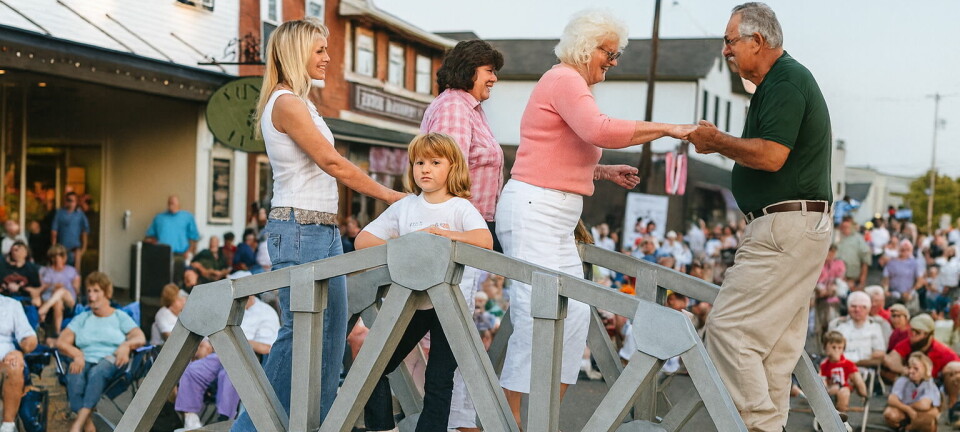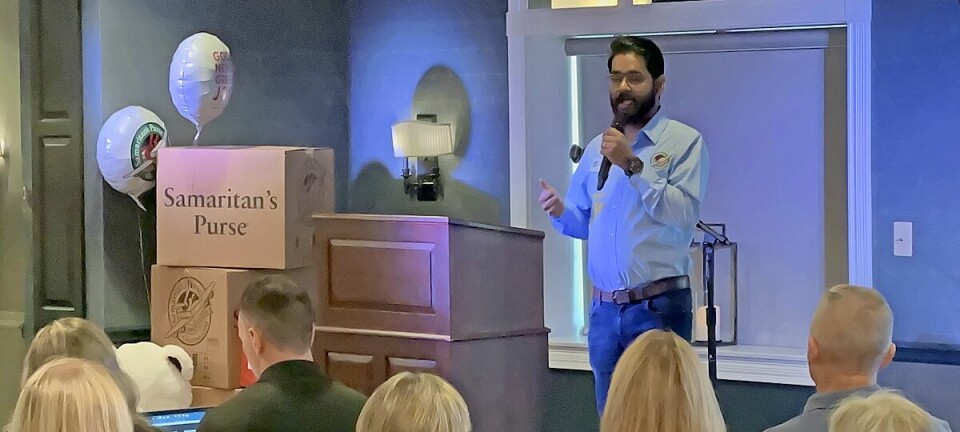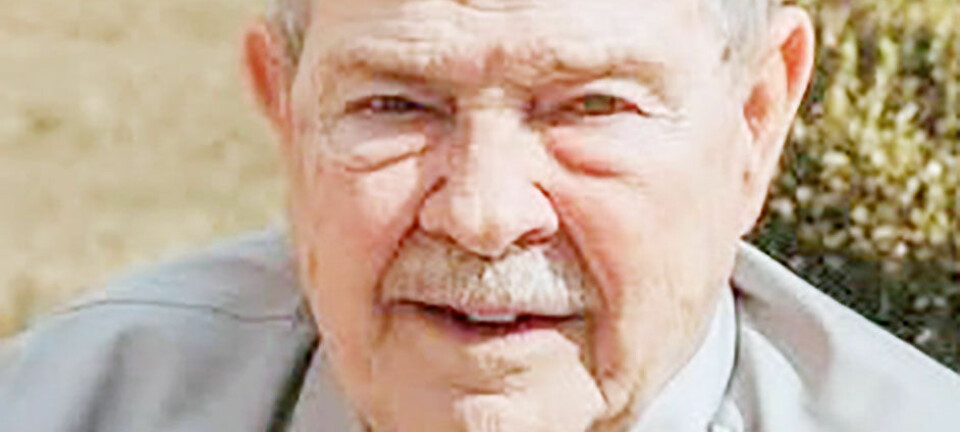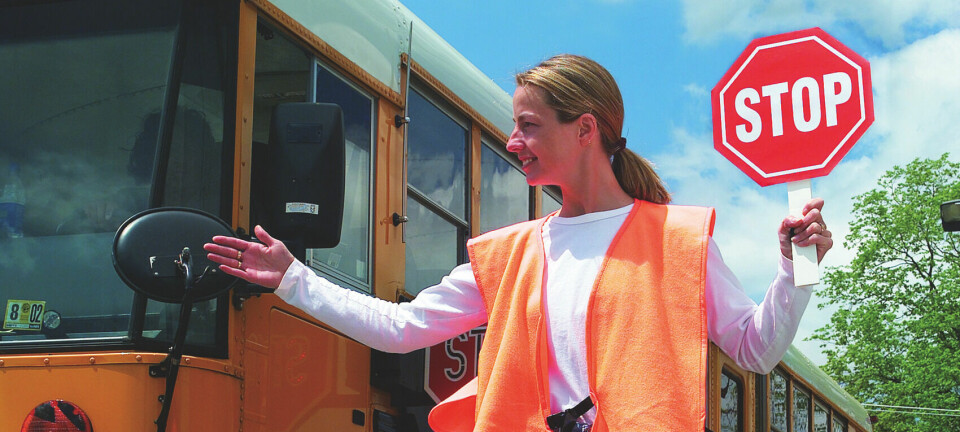The growing food insecurity problem in Wooster

“What’s different? What do you miss the most?” he asked.
“Just having a place to sit down with a cup of coffee and talk for a while,” she replied.
This conversation took place on a recent morning in the foyer at Trinity United Church of Christ in downtown Wooster. As the meal was being served, guests waited for breakfast sandwiches, water and snack items to help start another cold day on the street.
Since the COVID-19 shutdown in March of last year, the shared fellowship and exchange of information, the stories, jokes and mutual encouragement that were as much a part of the breakfast as hot coffee and eggs, are largely missing. And while Pastor Kevan Franklin and volunteers greet everyone, inquire about needs and offer advice (and sometimes a warm cap or socks), the mood is focused and serious.
According to Franklin the need for food is acute. Trinity’s breakfast program began in 1994 to provide meals for school children during the summer. It soon expanded to include their parents — perhaps 25-30 guests. In early 2020 the numbers were in the low 40s. Today, roughly 80 people, and as many as 100 at times, receive a sack breakfast from the crew of volunteers each morning.
Until this January the lunch volunteer crew at St. James Episcopal Church handed out sack lunches every Saturday. Volunteers saw the same increase in need from a daily average of 35-40 Wooster community participants to as many as 75 individuals and families served. St. James is now partnering with the Daybreak Community Church through its Kitchen of Hope program to provide a weekly take-out meal for lunch on Saturdays. The Salvation Army soup kitchen now also hands out to-go meals every Monday through Friday.
With the pandemic, all of Wooster’s programs see a change in who is in need of meals. Some of the older guests are no longer able to get a ride, or they stay away because of the cold or fear of infection. For them and for those who came mainly for the fellowship, that has meant fewer meals per week but an increase in isolation and loneliness.
Just up Market Street at the United Methodist Church, Pat Merrill, supervisor of the Meals Together Thursday dinner program, noted this change as well, as did Shirley Kirchberg at the 7th Day Adventist Wednesday lunch. More of the guests are new. More are families asking for extras to take home. More are homeless. Many of the homeless are young men.
Cheryl Oswald, manager of the food pantry and free Sunday night meal at Zion Lutheran Church on North Market Street, said for many years a hot meal was prepared for up to 75 people. Since the onset of the pandemic, a bagged sandwich supper is offered to-go. Now fewer guests may actually be waiting at the Larwill Street entrance at 5:30 p.m., but many ask for extra sacks for family members or friends. Although without the shared fellowship of past meals, the need for food continues.
This Sunday evening meal is the shared project of seven local churches. “It has been a truly ecumenical effort,” Oswald said.
At all of the food programs, growing numbers of guests served tell the story of food insecurity at rising levels even prior to the onset of COVID-19. Perhaps more remarkable are the numbers of children affected. Prior to COVID-19, approximately 40% of Wooster City Schools students qualified for free and reduced-price meals at school. The next article in this series will expand on the problem of childhood food insecurity in Wooster.
This story was written by Susan Figge and Wyn Jones for the Wooster Homelessness Task Force and is the first in a monthly series of articles on aspects of homelessness in the city. All of the programs mentioned above accept donations. The Task Force is a group of local community volunteers working to assist homeless fellow citizens, to develop additional shelter resources and to support local efforts to increase available affordable housing. For information about the Task Force, call Rev. Kevan Franklin of Trinity United Church of Christ at 330-264-9250.






